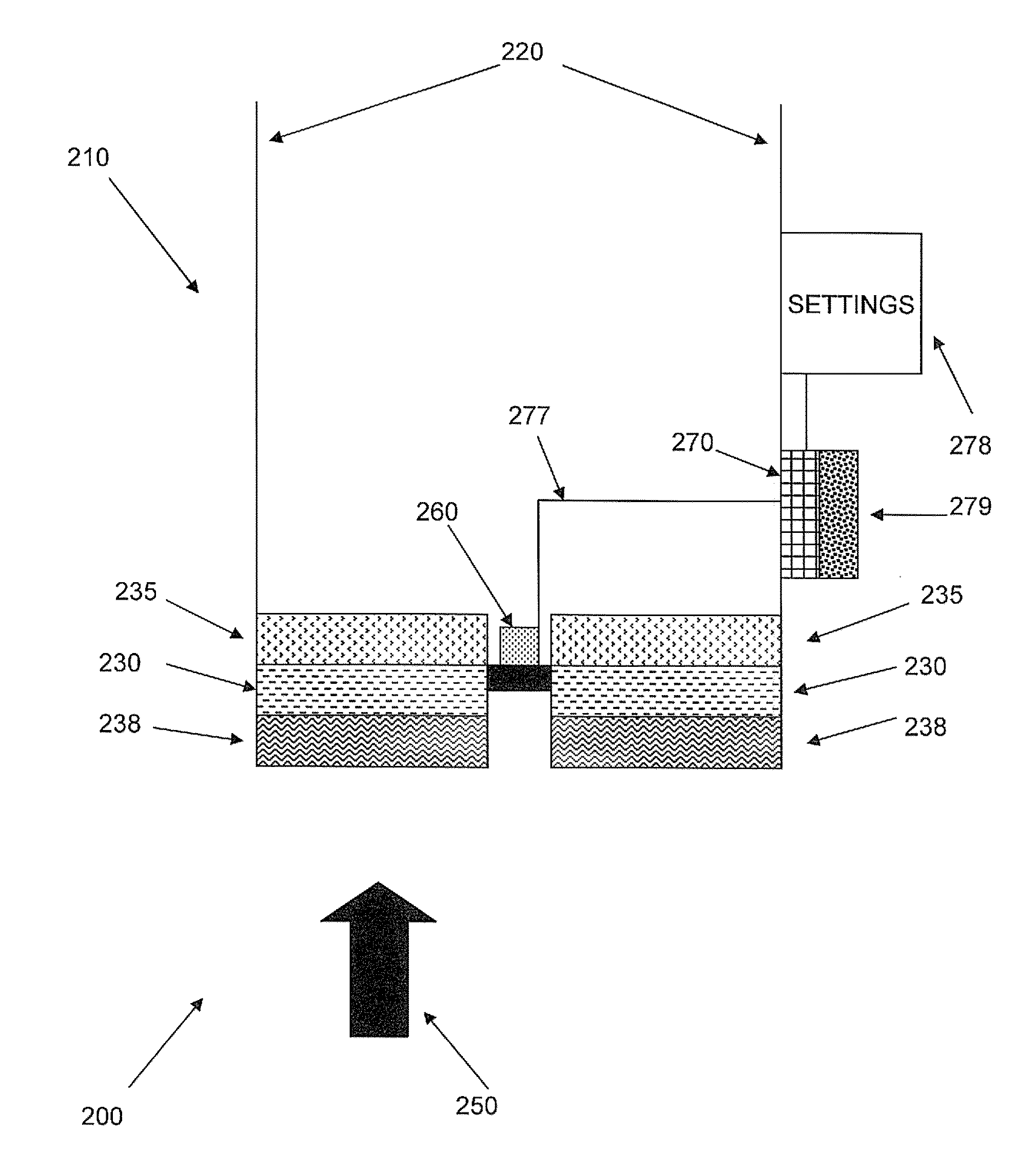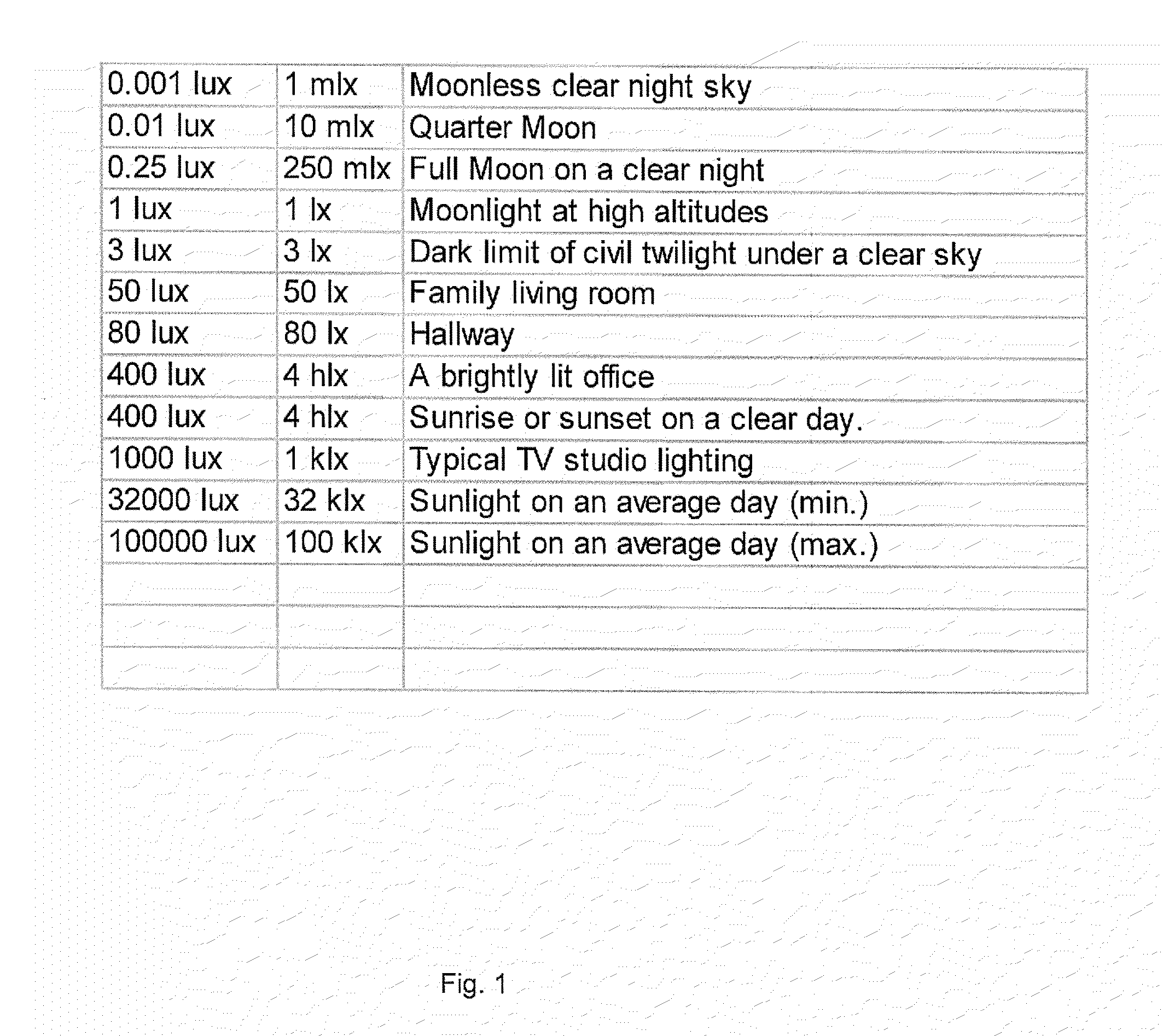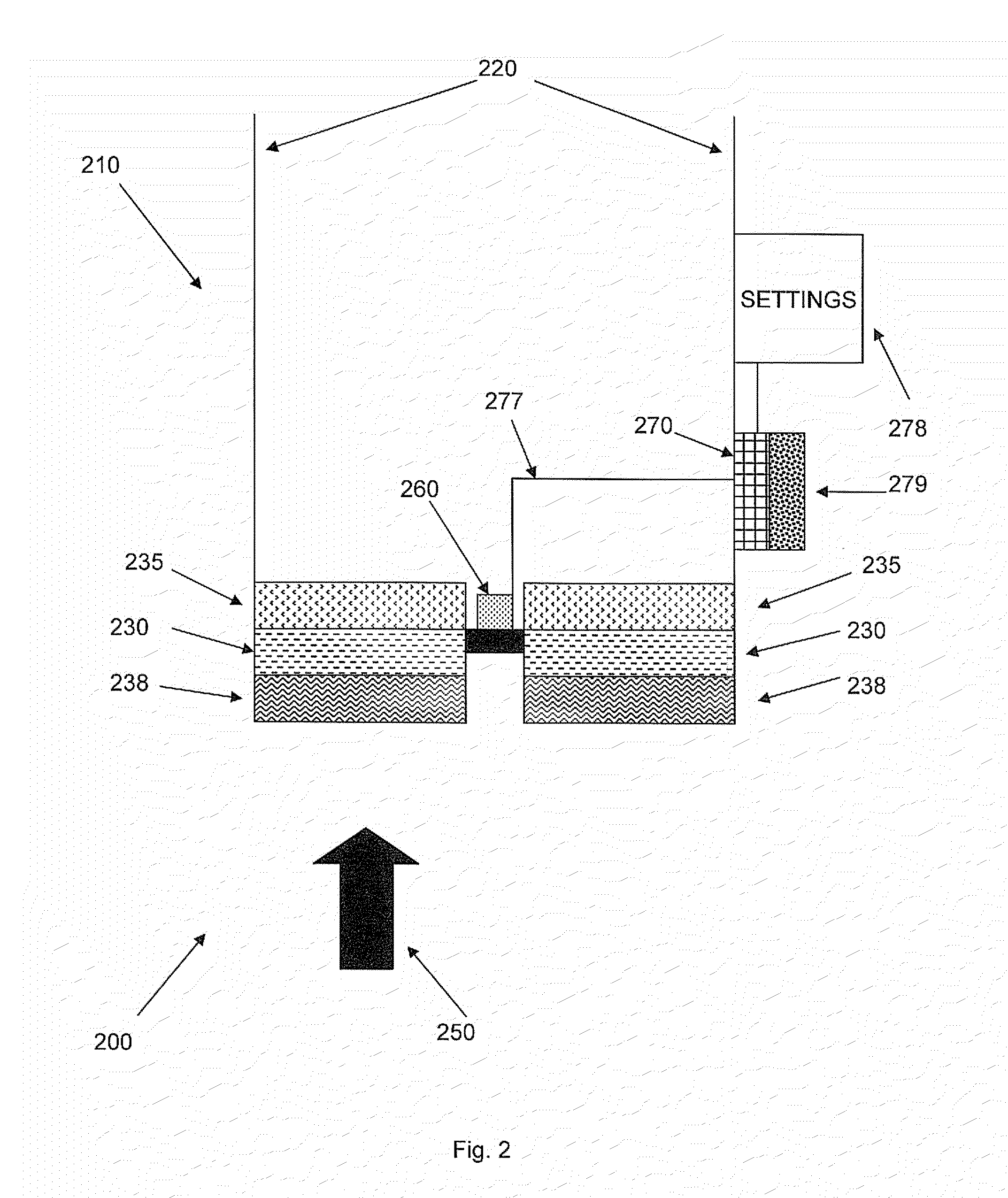Method and a system for protection of retina from light-induced damage
a technology for protecting the retina and light-induced damage, applied in the direction of optics, instruments, lens assemblies, etc., can solve the problems of diabetic retinopathy, tiny blood vessels, damaged blood vessels, etc., and achieve the effect of preventing the occurrence of retinal damage and/or further degradation
- Summary
- Abstract
- Description
- Claims
- Application Information
AI Technical Summary
Benefits of technology
Problems solved by technology
Method used
Image
Examples
examples
[0101]An animal study was undertaken to determine the efficacy of controlling light intensity reaching retina associated with a diabetic condition.
AIM OF THE STUDY: The aim of this study was to examine the effect of light on the development of retinopathy and cataract in diabetic rats.
MATERIALS AND METHODS: Diabetes was induced in rats by intra-peritoneal injection of streptozotocin (STZ). Blood glucose levels were measured 3 days after the injection of STZ; rats with blood glucose levels >300 mg % were identified as diabetic. Study was started 7 days after the induction of diabetes.
[0102]12 rats (6 control, 6 diabetic): 12 (h)—normal light / 12 (h)—dark.
12 rats (6 control, 6 diabetic): 12 (h) filtered light / 12 (h)—dark.
8 rats (4 control, 4 diabetic): 24 (h) dark.
4 rats (2 control, 2 diabetic): 24 (h)—filtered light.
Filtered light characteristics: Light intensity was reduced from 600 LUXS to 150 LUXS and light wavelength below 530 nm was blocked.
11 weeks later, both ERG r...
PUM
 Login to View More
Login to View More Abstract
Description
Claims
Application Information
 Login to View More
Login to View More - R&D
- Intellectual Property
- Life Sciences
- Materials
- Tech Scout
- Unparalleled Data Quality
- Higher Quality Content
- 60% Fewer Hallucinations
Browse by: Latest US Patents, China's latest patents, Technical Efficacy Thesaurus, Application Domain, Technology Topic, Popular Technical Reports.
© 2025 PatSnap. All rights reserved.Legal|Privacy policy|Modern Slavery Act Transparency Statement|Sitemap|About US| Contact US: help@patsnap.com



